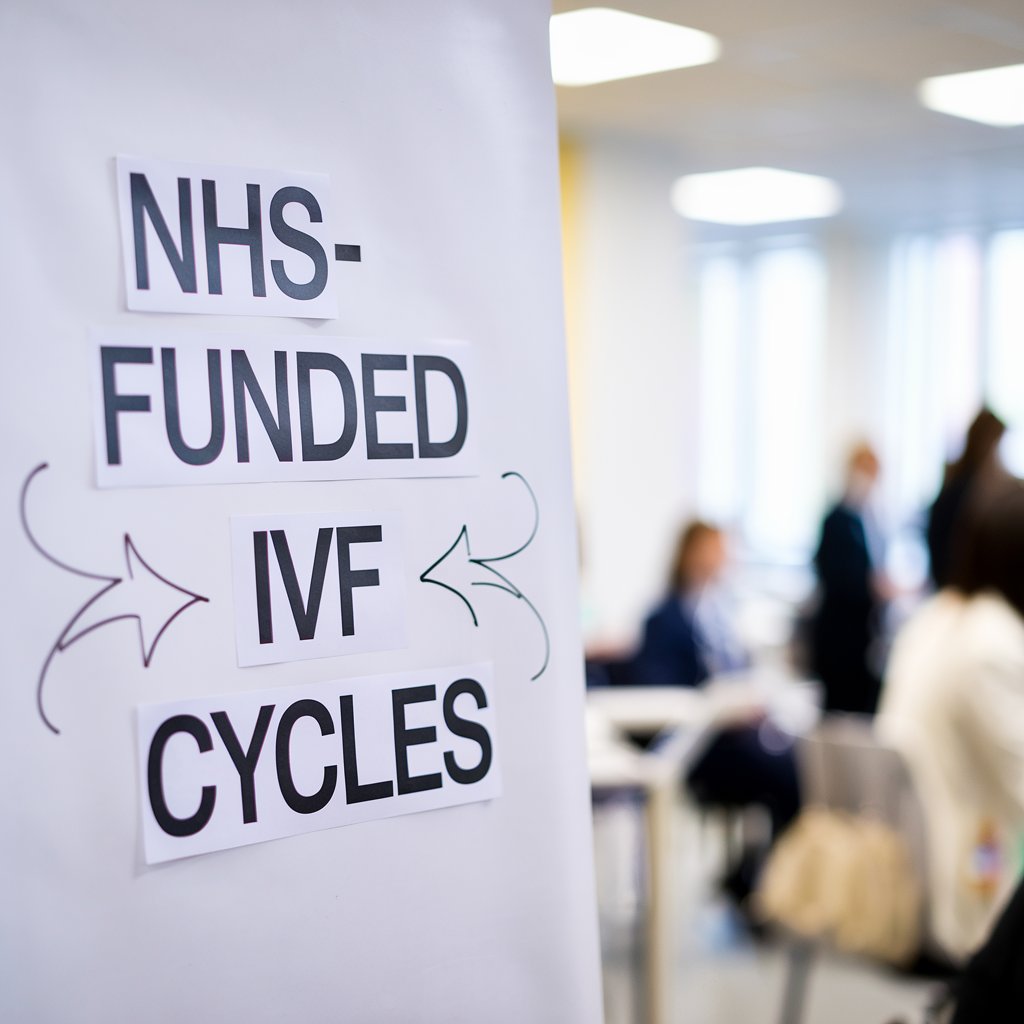If you are planning to undergo an IVF via the NHS funded route, then this article can help you. Recent reports have shown that there is a significant decrease in the NHS-funded IVF cycles and more people are now opting for private fertility clinics for their treatment.
Recent statistics from the Human Fertilisation & Embryology Agency (HFEA) have revealed that just 27% of all IVF cycles were paid for by the NHS, which is the lowest figure since 2008. In fact, researchers have also found that the number of IVF cycles funded by the NHS have dropped by 17% in England, 16% in Wales and 7% in Scotland between the years 2019 to 2022.
But what factors are influencing people’s decisions to opt for private fertility clinics? Let’s take a look.
Understanding the drop in NHS-funded IVF cycles
If statistics are to be believed, then approximately 1 in 7 couples in the UK face infertility, according to figures from the NHS. The truth is that these are just reported cases, and the real number is very likely to be much higher. To help couples with infertility, in the early 2000s, the National Institute of Health and Care Excellence (NICE) established formal guidelines to provide funded IVF cycles for women who are unable to conceive naturally via the NHS. This was a big milestone, and a formidable step to providing better access to fertility treatments for couples across the nation.
However, due to the strict eligibility criteria, many women are often unable to benefit from these treatments. For starters, women are required to be aged under 40. Women over this age do not meet the requirements. This makes it discouraging for women who may want to get pregnant later in life, and may sway them towards a private fertility clinic for help.
Secondly, the guidelines further specify a required BMI (Body Mass Index) for women. According to the criteria set, a woman who wishes to undergo this fertility treatment via the NHS, should have a BMI between 19 to 30. This may cause issues for many women as body weight fluctuations can happen quite frequently – which can result in a significant delay to get treatment.
Additionally, women must have been trying to get pregnant with regular unprotected sex for 24 months or have not yet been able to get pregnant despite 12 cycles of artificial insemination.
Another barrier is the well-known ‘Postcode Lottery’. Simply put, ‘postcode lottery’ refers to the varying access to healthcare across the different regions in the UK. For example, in England, the NHS IVF funding depends on the criteria set by the Integrated Care Board (ICB). However, in other regions such as Scotland and Wales, the criteria set nationally is abided by. This means that depending on the region where you may be staying, the access to NHS IVF funding may vary. NICE has urged the NHS in England to provide all women with equal access to three cycles of IVF, however seldom that is followed, due to regional inconsistencies.
So what should couples with infertility do? Which choice is best? Should they opt for a private fertility clinic?
Should you go private for fertility treatment?
Why do individuals and couples opt for private treatment options, given the cost differences?
Well firstly, a private fertility clinic will often have no waiting lists, unlike the NHS. This means that couples are able to start their treatment sooner, which is vital for such a time-sensitive procedure. Private clinics will also generally offer more flexibility in taking important decisions related to family planning. No need to plan your life’s important moments around waiting times!
Secondly, and importantly, you benefit from freedom of choice. From choosing your clinic location to the specific doctor that leads your case, you can have greater control over the entire process. There is a wealth of expertise and skilled fertility doctors in London. If you are looking for a fertility clinic in London you’ll find yourself spoilt for choice.
This brings us to another point – eligibility criteria. Thankfully, the criteria for fertility treatment at private clinics is a little more relaxed and less stringent because they opt for a more personalised approach. Private clinics will see patients outside of the NHS criteria, like BMI. Private clinics also don’t have an age limit on fertility treatments. This means whether you are a woman in your late 30s, mid 40s or even older, a good private clinic will not deny your fertility treatment and will assist you in improving your chances of conception – as much as possible. Though, it should be acknowledged that these factors do impact one’s chance of conception and they will be discussed with you if they are of concern to your chosen fertility doctor.
Possibly the most significant factor ruling in favour of private clinics is that there is no ‘postcode lottery’. All of this together allows for greater trust, more comfort and most of all, peace of mind. So while the NHS may offer – monetarily – a better deal, what you may be losing out on not going private is a better quality of service, experience, and control over your fertility journey.
Making the right choice for you
By now it’s likely you’ll have a better grasp of the differences between both NHS-funded IVF treatment and private fertility treatment. Not everyone is in a position to be able to afford private care, but hopefully this will help you better understand what might work for you.
If you have been battling an infertility diagnosis and are feeling lost, we hope that the information above will help you in making decisions about your care. Making a choice about fertility treatment can feel daunting, but there is no right or wrong – remember, the best choice is the one that works for you, your budget, your lifestyle, and your goals. We wish you the best of luck making your dream of expanding your family a reality.






